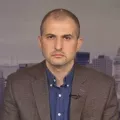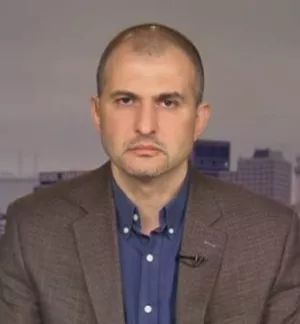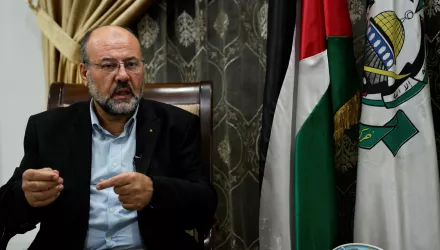"We are going to pursue terrorists everywhere. If they are in the airport, we will pursue them in the airport. And if we capture them in the toilet, then we will waste them in the outhouse. … The issue has been resolved once and for all,” Prime Minister Vladimir Putin told Russian television on Sept. 24, 1999.
More than a decade later, however, Russia continues to suffer from the deadly menace of indigenous terrorism. Monday’s suicide bombing at Moscow’s busiest airport has become the latest tragedy.
Reacting to the attack, President Dmitry Medvedev lambasted Domodedovo management for “either absence of control” or “partial control of movements” in the airport.
He demanded the ouster of Domodedovo Airport managers and law enforcers responsible for security at transportation facilities and called for the introduction of “a more rigid system of checks, total control” of airport security in Russia.
Medvedev’s tough talk may be designed to convince the general public that he is capable of rising to security challenges. This is as important in the pre-election year as it was for Putin in 1999. But these statements may also be a sign that the president doesn’t see the big picture.
Toughening the security regime at airports would make it more difficult for attacks at these locations, but terrorists could choose from a long list of alternative targets, such as big shopping centers, where there is always large concentrations of people.
While the president is justified in demanding the resignation of law enforcement officials, he is on shaky ground when he faults managers of a privately managed airport for security lapses in a public access zone.
After all, counter-terrorism is the job of law enforcement and security agencies, and Russian laws specifically assign the task of patrolling airports outside the customs zone to the police. Authorities were tipped off a week before the attack that “something is being prepared” and might take place near Domodedovo’s customs control zone, but police assigned to the airport continued to focus on extorting bribes from foreigners arriving from Central Asia, an employee of the airport’s private security service told Lifenews.ru on Monday.
If that allegation is true, then the question arises whether all the measures that the government has taken and will take to fight terrorism will work as long as corruption persists. The answer is, of course, no.
The authorities need to rid law enforcement of corruption or at least minimize it, motivating everyone from policemen to detectives to prevent crimes rather than earn more money.
Authorities also need to reverse the changes made to the Interior Ministry’s directorate that used to deal with terrorism and organized crime. The division was reformed in 2008 to focus on “extremism” — a term that often has been interpreted by the police and their superiors as the radical political opposition, not militants.
Hopefully, the attack will motivate federal authorities to amend laws and practices to focus on the systemic prevention of terrorism rather than introduce another round of what Russians call the “tightening of the screws.” This is what occurred after the Dubrovka theater terrorist attack in 2002 and the Beslan school tragedy in 2004, when the Kremlin curbed media freedoms and canceled the popular elections of governors.
The authorities have made significant progress in dismantling North Caucasus-based terrorist networks, with most of their veteran leaders either killed or captured, but clearly more needs to be done to keep them on the run. Monday’s bombing demonstrates that the recent schism in the leadership of these networks has had little impact on their overall capabilities, but may even prompt splinter groups to up the ante in an effort to outbid one another.
The authorities also need to address the root causes and contributing factors behind this menace, including the increasing popularity of militant Islamist ideology in the North Caucasus, human rights abuses against the local population by law enforcement officials, poor education and widespread poverty and joblessness.
Until this is done, terrorist groups will continue to enjoy a steady stream of new recruits. As Gennady Gudkov, a State Duma deputy and retired FSB colonel, told Kommersant, terrorists used to spend months trying to find and train suicide bombers. “Now there is a line of suicide bombers formed in the North Caucasus waiting for their turn to blow themselves up anytime,” he said.
Saradzhyan, Simon. “From Toilet to Airport.” Moscow Times, January 27, 2011



